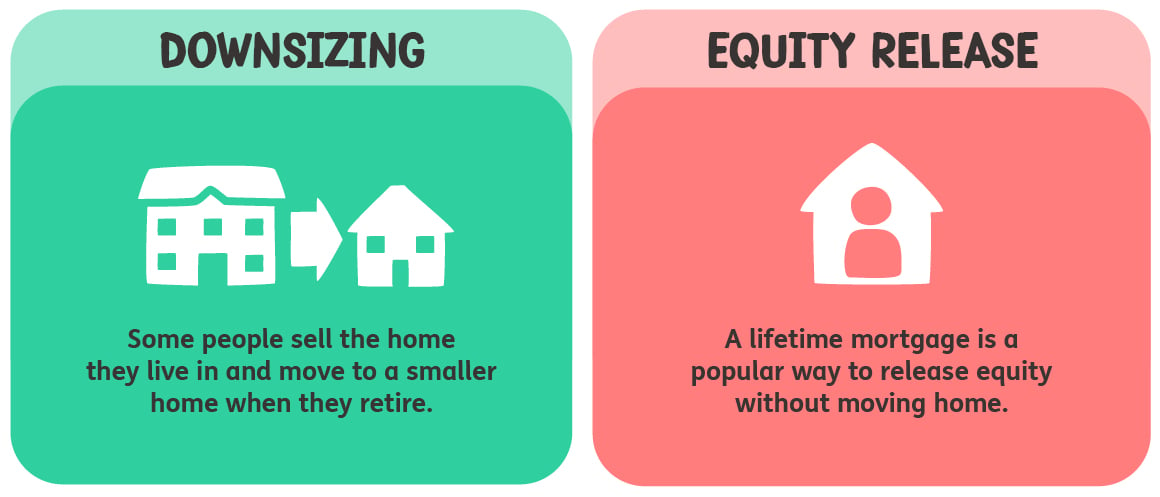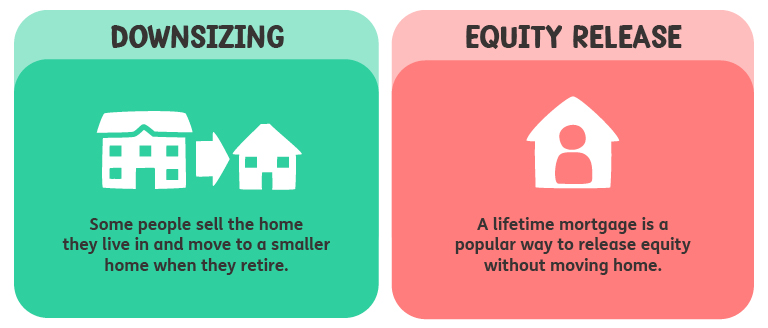Your home can be a valuable source of income to support your life after work. There are different ways to do this, and the two most popular downsizing and equity relase.
Releasing equity from your home
"Equity release products are risky. You could end up owing more than the value of your home."
"Equity release products are risky. You could end up owing more than the value of your home."
Most companies offering equity release are members of the Equity Release Council. Members must comply with the Council’s requirements. One requirement is a ‘no negative equity’ clause. This means no one can end up owing more than the value of their home when it is sold following death or moving into long-term care.


Examples of equity release include a lifetime mortgage and a home reversion plan.
With a lifetime mortgage you take a loan against the value of your home. You don’t have to repay anything until you (or both of you if borrowing jointly) move permanently to a care home or you die. When this happens, the property is sold and the loan, plus the interest owed, is repaid.
A home reversion plan means you sell all or part of your home (at less than market value), and in return you’re paid a lump sum or regular income. You have the right to carry on living in the house rent free, or for a fixed rent, until you die or move out.
If you’re not comfortable with these options, you could raise money by taking in a lodger. By renting a furnished room in your main residence, you can take advantage of the Rent a Room scheme. So any income you earn in renting out the room is tax-free up to £7,500 per year.
Do I qualify for equity release?
Most people who’ve retired with a property they own should qualify.
Different equity release providers have different criteria they apply when assessing if a customer can take out equity release – however, in the main, you should be eligible for equity release if:
• You are a homeowner in England, Scotland, Wales or Northern Ireland and it's your main residence
• Your property is worth £70,000 or more
• You are aged 55 and over
If you already have a mortgage, you will need to repay this when you take out an equity release plan. You may be able to use the funds released to do this, but using equity release to repay an existing mortgage may cost more in the long-term.